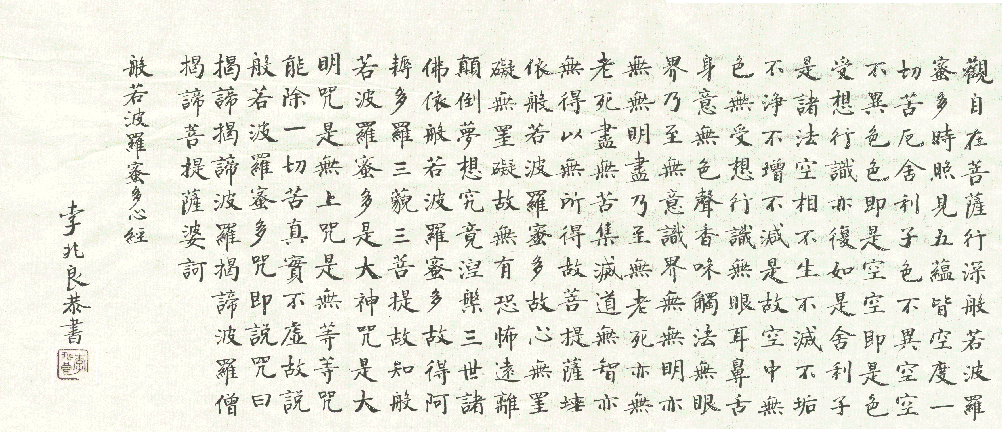SUTRAS AND THE HEART SUTRA

The complete Heart Sutra in Chinese
Question
Can you please give us some background about sutras?
-- Sifu Roland Mastel, Switzerland
Answer
Sutras are the verbatim teaching of the Buddha. When the Buddha attained paranirvana, i.e. left this phenomenal world and returned to Cosmic Reality, his disciples were concerned that the Buddha's teaching might eventually be lost.
Five hundred of the Buddha's disciples, known as the 500 Arahans, met in a conference to review and confirm the Buddha's teaching.
Ananda, who was the Buddha's personal attendant and therefore had heard all of the Buddha's teaching, and who also had the miraculous power of remembering everything he had heard, recited the Buddha's teaching word by word. The verbatim report was verified and confirmed by all the Arahans present.
The Buddha's teaching was recited or chanted by monks. With only a few exceptions, sutras always start with the phrase "Thus have I heard" , which reminds that they were reported by Ananda verbatim. It was a few hundred years later that the sutras were written down.
Question
Can you please tell us something about the Heart Sutra as I have often heard it mentioned?
Answer
The Heart Sutra is very important in Buddhism, especially in Zen Buddhism. It is a record of the enlightenment experience of Bodhisattva Avalokitesvara or Guan Yin Bodh Satt. In Chinese it consists of only about 162 words, yet it contains the gist of Buddhist philosophy.
In deep meditation Guan Yin Bodh Satt perceives that form is the same as emptiness, and emptiness is the same as form. All phenomena are empty. There is no birth and no death, no defilement and no purity, no adding and no subtracting.
There is no reality perceived by eyes, ears, nose, tongue, body and mind. There is no sight, sound, smell, taste, feeling and substance. There is no ignorance, and end of ignorance, no age and death and no end of age and death.
There are no four noble truths and no eight-fold path. Because there is nothing, there is no blockage. Hence, bodhisattvas employing the practice of perfection attain the supreme Enlightenment.
LINKS
